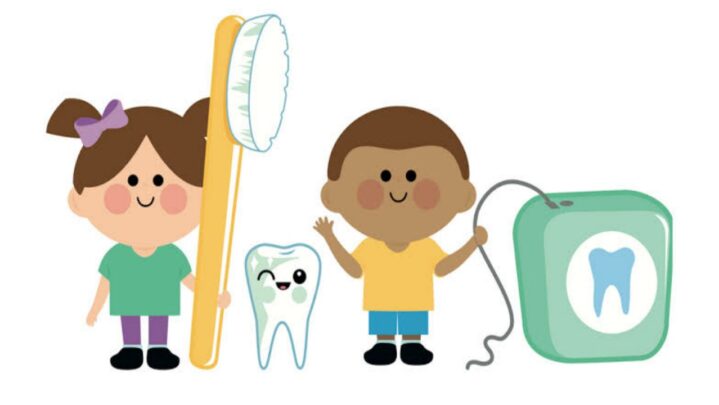Our mouths are a breeding ground for a variety of bacteria, which is why it has been recommended to brush our teeth at least twice a day and floss at least once a day since the dawn of time. Unfortunately, dental hygiene is seldom given the attention it deserves, resulting in discomfort, unhealthy gums, and teeth.
Cultivating good dental habits begins in childhood and goes a long way toward preventing tooth decay and cavities later on. As a result, in addition to other health concerns, taking care of your child’s dental hygiene should be a top priority for all parents. We’ve compiled a list of strategies to ensure that your child’s gums and teeth are healthy at all ages.
1) Infants’ dental hygiene.
Take care of your baby’s dental hygiene now, rather than waiting for him to start teething. After feeding, wipe your infant’s gums with a soft, clean cloth to remove bacteria. You can begin brushing your baby’s teeth with a soft toothbrush when they first appear, between the ages of 6 and 12 months (specially made for babies).
When brushing your baby’s sparkling whites, make sure to use only a grain of toothpaste that is specifically made for babies. Also, don’t put the baby to sleep with a bottle in his mouth because the liquid will pool around his teeth, causing cavities and decay.
2) Dental care for youngsters aged two and onwards.
You can offer your children fluoride toothpaste to brush their teeth when they are two (or older), as they should have learned to spit out toothpaste by now. Make sure they just use a pea-sized amount of toothpaste and that they do not swallow it. It’s now or never to teach them to wash their teeth twice a day.
You can also seek advice from a dentist on how to best care for your child’s oral health. The American Dental Association recommends that children see a dentist by their first birthday to learn basic brushing and flossing procedures. He can also detect early indicators of dental problems.
3) Dental hygiene for children and adolescents.
Make sure your adolescent brushes his teeth twice a day for at least two minutes. They should also begin flossing regularly to avoid cavities and tooth rot. Because more of their permanent teeth are growing in, now is the time to get children excited about their everyday dental hygiene routines.
Your dentist may also recommend braces if your child develops an overbite or other dental misalignment. If your child wears braces, flossing every day becomes even more crucial. Look for kid-friendly toothpaste and toothbrushes on the market that is designed specifically for children! This will encourage your child to brush his or her teeth.
Keep reading successyeti.com.
Also Read: Things Parents Should Avoid To Keep Their Children In A Happy Environment





